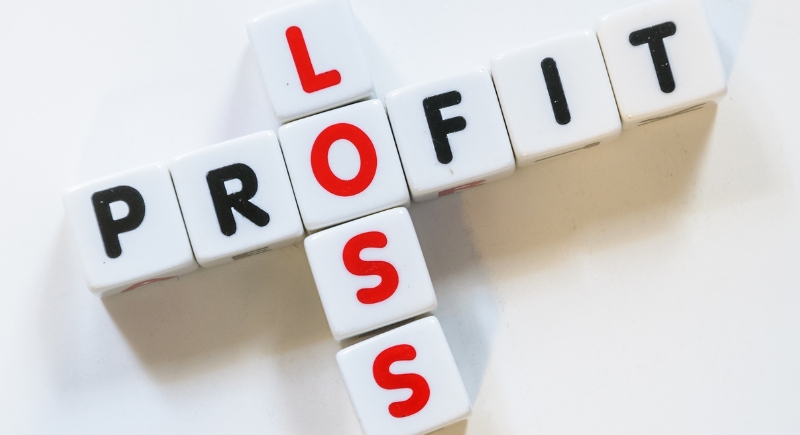Kevin O’Leary, the outspoken investor from "Shark Tank" and founder of the software firm SoftKey, doesn’t soften his advice. It’s drawn from years of building, selling, and backing companies where only results matter. For serious entrepreneurs, his toughest lessons are often the ones that make the biggest difference. Here are some that may be of help to you.
There’s No Time for Balance

Credit: pexels
O’Leary rejects the idea that business can be built in available spare time. Founders who try to protect their weekends or set predictable schedules rarely last. A growing company demands near-total attention, especially in the development stages. Freedom may eventually follow, but only after the business claims every available resource, including time.
Let People Go Without Delay

Credit: Canva
When someone stops contributing, they should be removed without a second thought. Teams are too small, and margins are too thin to carry unresolved issues. Any doubt about someone’s alignment is a decision in disguise. Slow action creates larger setbacks.
Targets Must Carry Real Pressure

Credit: Getty Images
Financial projections mean nothing without follow-through. If the team misses, there should be a serious analysis and consequences. O’Leary refuses to invest in companies that treat goals as wishful thinking. He wants clear benchmarks and internal systems that adjust when results fall short.
Profit Comes Before Every Mission

Credit: Getty Images
O’Leary evaluates every company by one standard: can it generate returns? At the beginning of his career, he launched a television production business that specialized in educational content. Though it served a public benefit, he shut it down as soon as he realized it couldn’t support itself financially.
Don’t Prop Up Broken Ideas

Credit: Getty Images
When a business shows no signs of traction, the Canadian businessman chooses to move on, rather than debate the outcome. He’s openly critical of investors who continue funding weak ventures out of sympathy, calling that approach both misleading and wasteful. Persisting with a model that clearly doesn’t work isn’t a strategy. In fact, it’s mismanagement.
Execution Separates Ideas and Outcomes

Credit: bongkarngraphic
Entrepreneurs should avoid pitching concepts that exist only on paper. Investors want proof of action, such as actual shipments, active sales channels, and functioning production. Until something launches, an idea holds no weight. Remember, progress matters more than presentation. Show what’s been built, not just what’s planned.
Ownership Starts with Refusing Obedience

Credit: Getty Images
As a teenager, O’Leary was fired from an ice cream shop because he refused to scrape gum off the floor. That moment defined his career. He decided he would never again take orders he couldn’t challenge. Today, according to him, success is the freedom to decide how and where he works, without needing permission.
Revenue First, Branding Later

Credit: charliepix
Early-stage companies should focus on transactions, not marketing. Until buyers are paying, a brand doesn’t exist. O’Leary advises testing customer willingness to pay before investing in polish. It is necessary to generate feedback through actual use, not theory. A sale confirms demand, and everything else can wait.
Judgment Builds Through Repetition

Credit: pexels
Having reviewed thousands of pitches, the businessman can now assess most within minutes. That speed comes from pattern recognition, not instinct. He’s studied what succeeds and what fails long enough to spot it in time. Founders can develop similar judgment by reviewing outcomes instead of guessing.
Efficiency Made His Company Scalable

Credit: Getty Images
In his software business, engineers were wasting time duplicating tasks. By implementing reusable code libraries, the company improved output without increasing headcount. That shift made the product line scalable. O’Leary continues to favor operations that remove friction.
Failure Builds Better Operators

Credit: Getty Images
Entrepreneurs who’ve faced significant losses develop stronger judgment and a sharper sense of risk. Failure forces adjustments that theory can’t teach. If you’ve never been tested, you’re more likely to overlook what matters.
Three Years Is the Limit

Credit: Getty Images
If a business hasn’t produced revenue within three years, it’s time to walk away. O’Leary treats this as a firm deadline, as he sees extended periods as a way to avoid hard solutions, not a sign of long-term thinking. Continuing to fund an unprofitable venture only delays progress elsewhere.
Disrespect Signals Larger Issues

Disrespect Signals Larger Issues
The TV personality has ended deals upon witnessing owners mistreat staff or vendors. That kind of conduct doesn’t stay isolated, instead, it spreads throughout an organization. The most dangerous companies aren’t those with flawed products, but those led by people who disregard others.
Explain the Business in Seconds

Credit: Getty Images
One founder described their company in ten seconds, and O’Leary funded it. If a business takes five minutes to explain, it likely hasn’t been built tightly enough. Precision reflects understanding. An owner who can’t summarize their value likely hasn’t defined it beforehand.
Crowdfunding Isn’t Proof of Viability

Credit: Getty Images
Strong crowdfunding numbers reflect interest, not proven demand. What matters is how customers respond after the pledge— do they buy again, leave feedback, or recommend it? These indicators show whether the product solves a problem. Without them, initial attention offers little insight.
